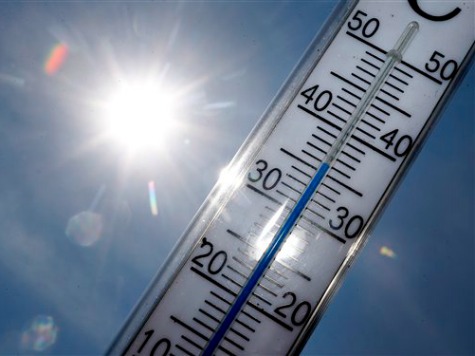After constant claims that the earth had but “ten years left” before global warming would destroy us all, temperatures suddenly stopped rising in the 1990s. Now, scientists say that the “pause” in rising temperatures might last another ten years.
The newest reason scientists think that temperatures are not rising as fast as predicted is that the Atlantic and Southern Oceans are storing the heat deep below their surfaces.
This is one of nearly a dozen theories offered by scientists to explain why climate predictions have been off for more than a decade. Scientists, though, have warned that focus on this “pause” or “hiatus” in rising temperatures is a “distraction” from what they consider the inevitable fact that the earth is still warming.
The new theory published in the Science journal this month claims that ocean currents have swept the warmer ocean waters deep into their depths, thereby stopping the heat from being released into the atmosphere.
The theory goes on to state that the heat can be stored for up to 30 years, causing cooler surface temperatures. In fact, theorists now claim that these ocean currents have been storing warming temperatures deep in the ocean for some time, even counteracting the effects of man-made global warming.
But this won’t last forever, scientists warn.
“When the internal variability that is responsible for the current hiatus switches sign, as it inevitably will, another episode of accelerated global warming should ensue,” they claim.
The scientists say that once these ocean currents stop storing the heat, the earth will find a new era of rapidly increasing temperatures.
This study shows that the “pause” in raising temperatures is ultimately meaningless, says Piers Forster, professor of climate change at the University of Leeds. Forster believes this newest theory is “another nail in the coffin of the idea that the hiatus is evidence that our projections of long term climate change need revising down.”
“Variability in the ocean will not affect long-term climate trends but may mean we have a period of accelerated warming to look forward to,” states Piers.
Still, theories abound about global warming, or the current lack thereof. Greenpeace co-founder Patrick Moore, for one, states that there is no scientific proof for the theory at all.
But theories about the so-called warming hiatus abound, as well. One recent theory posited that the Pacific winds were the culprit for slowing global warming.
Follow Warner Todd Huston on Twitter @warnerthuston or email the author at igcolonel@hotmail.com.

COMMENTS
Please let us know if you're having issues with commenting.